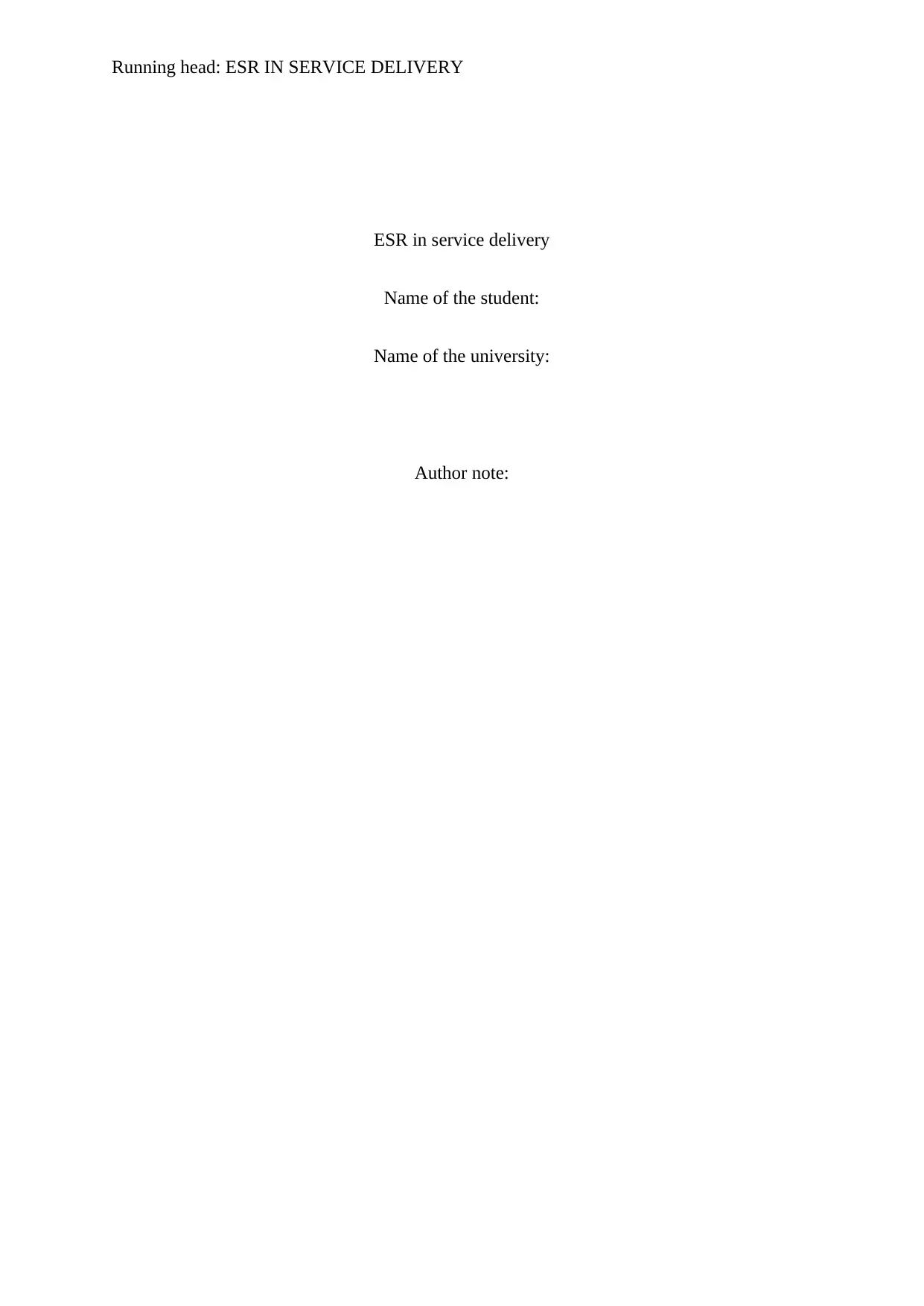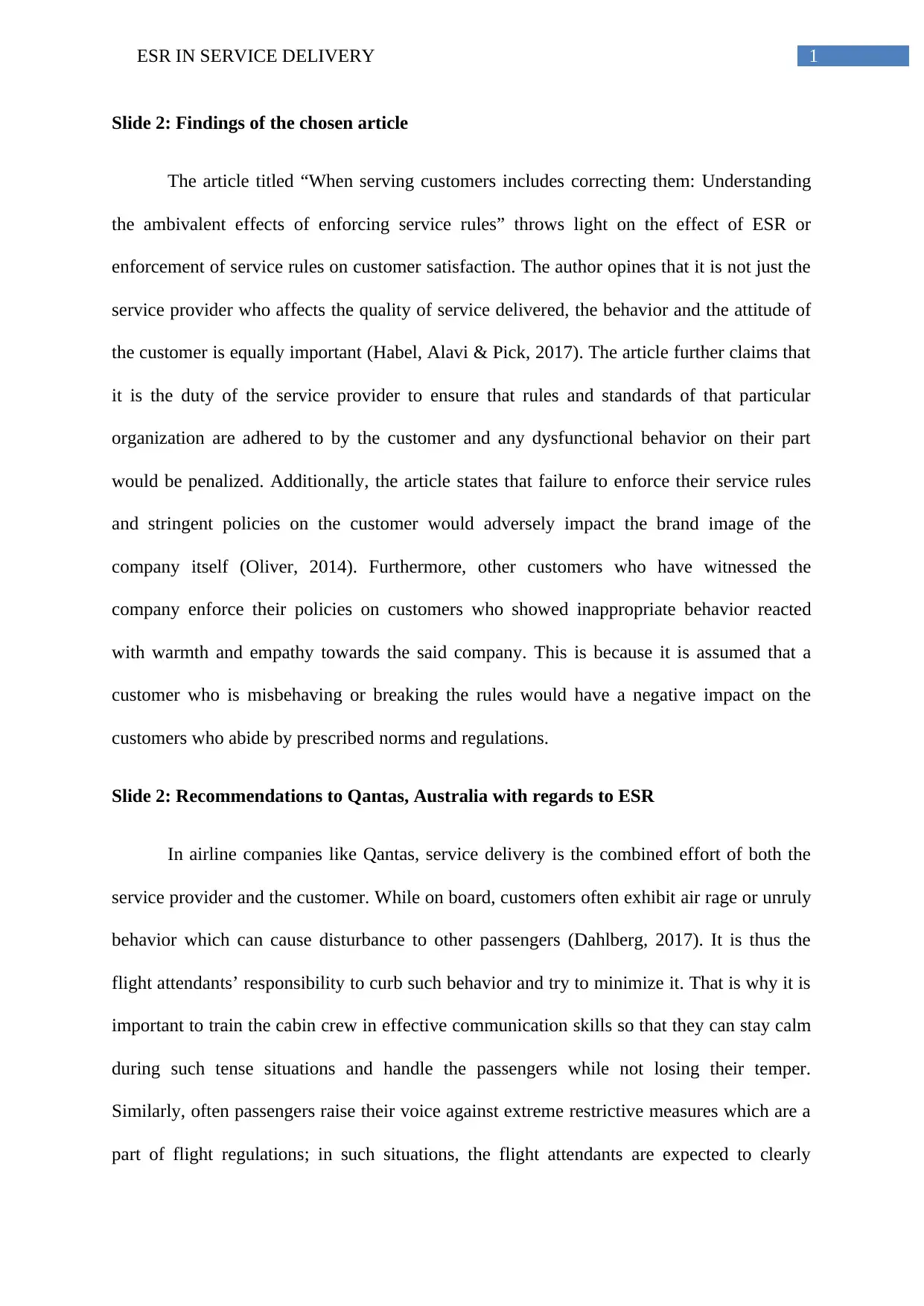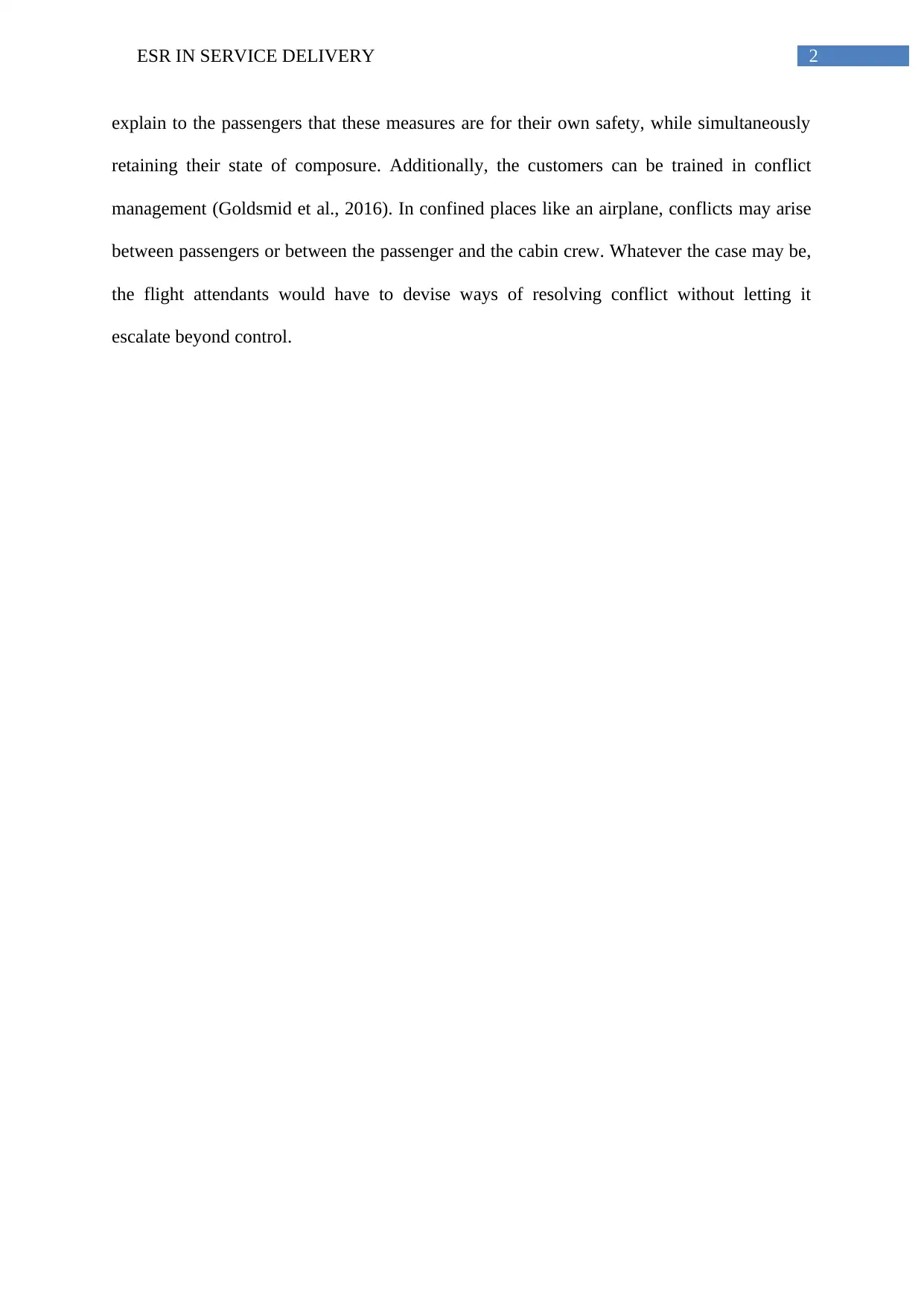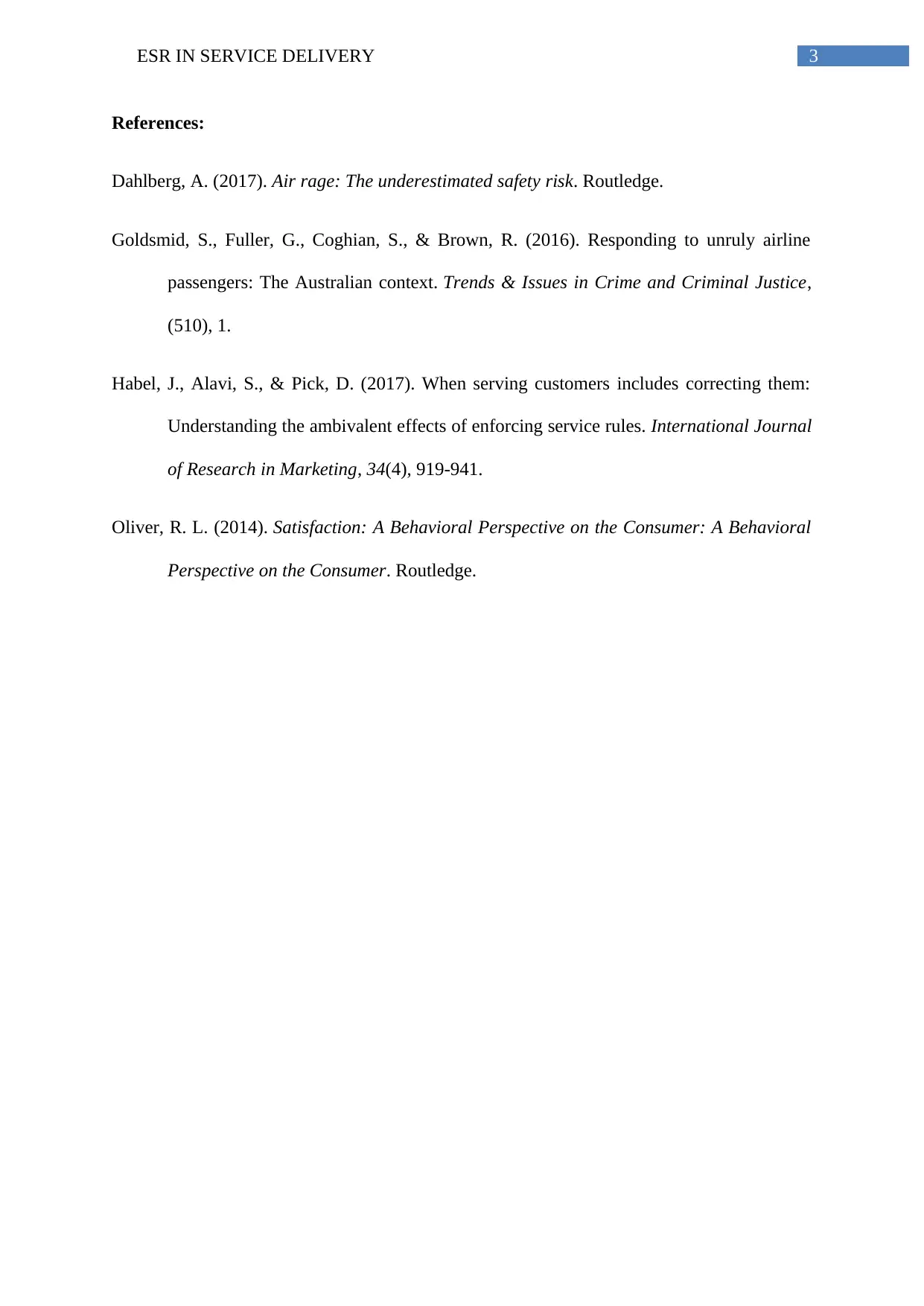Enforcing Service Rules: Improving Qantas' Delivery - Presentation
VerifiedAdded on 2023/06/08
|4
|619
|206
Presentation
AI Summary
This presentation examines the impact of enforcing service rules (ESR) on customer satisfaction, drawing from research that highlights the importance of customer behavior in service delivery. The presentation focuses on an article that suggests penalizing dysfunctional customer behavior and enforcing service rules to protect brand image and ensure positive experiences for other customers. It then applies these findings to Qantas, recommending training for cabin crew in effective communication and conflict management to handle unruly passenger behavior and address concerns about restrictive flight regulations. The goal is to improve service delivery by managing customer behavior effectively while maintaining composure and ensuring passenger safety. Desklib provides a platform for students to access similar solved assignments and past papers.
1 out of 4






![[object Object]](/_next/static/media/star-bottom.7253800d.svg)